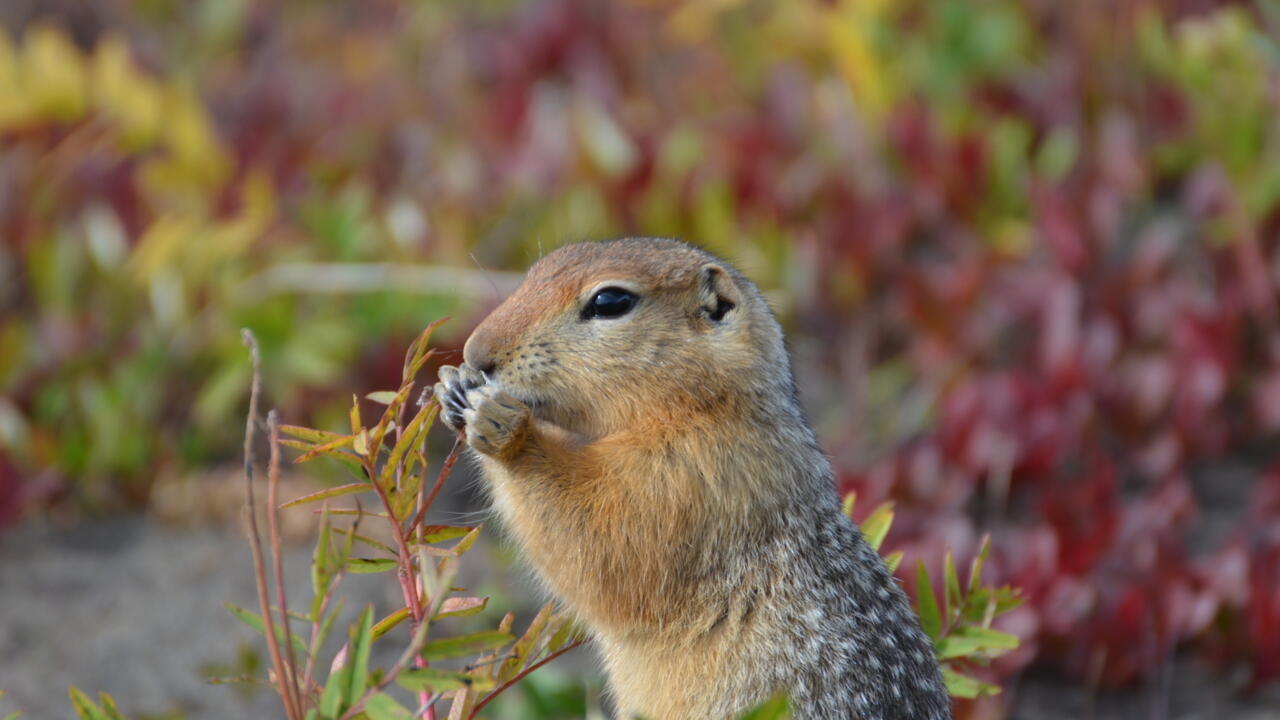But scientists studying these rodents have discovered a surprising consequence of climate change: with rising temperatures, females of this species have gradually shifted the time when they come out of hibernation, now 10 days earlier than a quarter of a century ago.
The males have not changed their waking date, which threatens to complicate the dates of these little animals, according to a study published Thursday in the journal Science.
In the past, males would come out of hibernation for a full month before females, which gave their testicles, which retract each fall, time to descend and return to their normal state. But this interval is gradually narrowing.
"If this continues, females will emerge before males are fully mature for breeding," Cory Williams, co-author of the study and a biologist at Colorado State University, told AFP.
-Adaptation-
Like many animals in the Arctic, these squirrels (Urocitellus parryii) have evolved to adapt to the harsh winter in this region.
They hibernate for about eight months a year, digging about a meter deep in the sand at the edge of rivers.
Their body temperature drops from about 37°C to -3°C, a lower in mammals, and they significantly slow down the activity of their brains, lungs, heart and other organs -- a state called "torpor".
For the study, the researchers analyzed the air and soil temperature at two sites, as well as the abdominal and skin temperatures of 199 squirrels over the same period (collected by sensors).
They found a significant increase in ambient temperature, as expected in this region that is experiencing climate change with full force, with warming four times faster than the rest of the globe.
"The minimum soil temperature in winter is higher. It's not that cold anymore," Williams said. "And we also see a change in the freezing and thawing of the earth. Soils freeze today later, and thaw earlier."
This had two effects on the squirrels.
Even if they go into hibernation at the same time, the time at which their body temperature drops below 0°C has been delayed, which also postpones the triggering of a process requiring a lot of energy: the production of heat to prevent the death of certain biological tissues.
In addition, females end their hibernation earlier, at the beginning of the thaw in the spring.
Why does this early awakening only affect females? Nothing sure, but scientists have their theory. They seem more sensitive to external conditions than males, who are more controlled by their testosterone levels, which are rising as the breeding season approaches.
Quick consequences
These changes also have advantages: females wake up plumper than before, and can feed earlier on roots, berries, or seeds. This can allow them to give birth to healthier litters, with a better survival rate.
But it also means that they are exposed longer to their predators (eagles, foxes, wolves...) -- in addition to disturbances in their sexual interactions.
Consequences upstream of the food chain are also possible, if their predators get used to prey available earlier, and in return advance their own breeding season. The overall impact is then difficult to predict.
Regardless, this work provides evidence that climate change can have direct consequences on an ecosystem in a relatively short period of time, says Helen Chmura, lead author of the study.
"We worked on 25 years of data, which is quite long for a study, but very short in ecology," she told AFP. "We have evidence of effects on the ecosystem on the scale of a human lifetime, including young people."
© 2023 AFP

